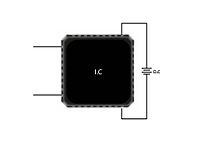High-temperature operating life

OK kiddo, have you ever touched something that's really, really hot? Like a hot stove or a hot pot? Remember how you felt the heat right away and how you had to quickly move your hand away? Well, certain things like electronic devices and machines also get very hot when they work.
The problem is, when things get really hot, they can start to break down and stop working properly over time. That's where 'high-temperature operating life' comes in. This is a fancy way of talking about how long something will keep working when it's exposed to really high temperatures for a long time.
Just like how your hand might start to hurt if you hold it over a hot stove for too long, electronic devices and machines can also start to break down if they're exposed to high temperatures for too long. So, people who make these things need to figure out how long they can last in order to make sure they don't break down and cause problems.
To do this, they test the devices at very high temperatures - just like baking them in an oven - and see how long they keep working properly. This helps them figure out how long the devices can last after they're made and how hot they can get before they break down. The goal is to make sure that the devices can keep working even when they get really hot, so people can use them safely for as long as possible.
The problem is, when things get really hot, they can start to break down and stop working properly over time. That's where 'high-temperature operating life' comes in. This is a fancy way of talking about how long something will keep working when it's exposed to really high temperatures for a long time.
Just like how your hand might start to hurt if you hold it over a hot stove for too long, electronic devices and machines can also start to break down if they're exposed to high temperatures for too long. So, people who make these things need to figure out how long they can last in order to make sure they don't break down and cause problems.
To do this, they test the devices at very high temperatures - just like baking them in an oven - and see how long they keep working properly. This helps them figure out how long the devices can last after they're made and how hot they can get before they break down. The goal is to make sure that the devices can keep working even when they get really hot, so people can use them safely for as long as possible.
Related topics others have asked about:
